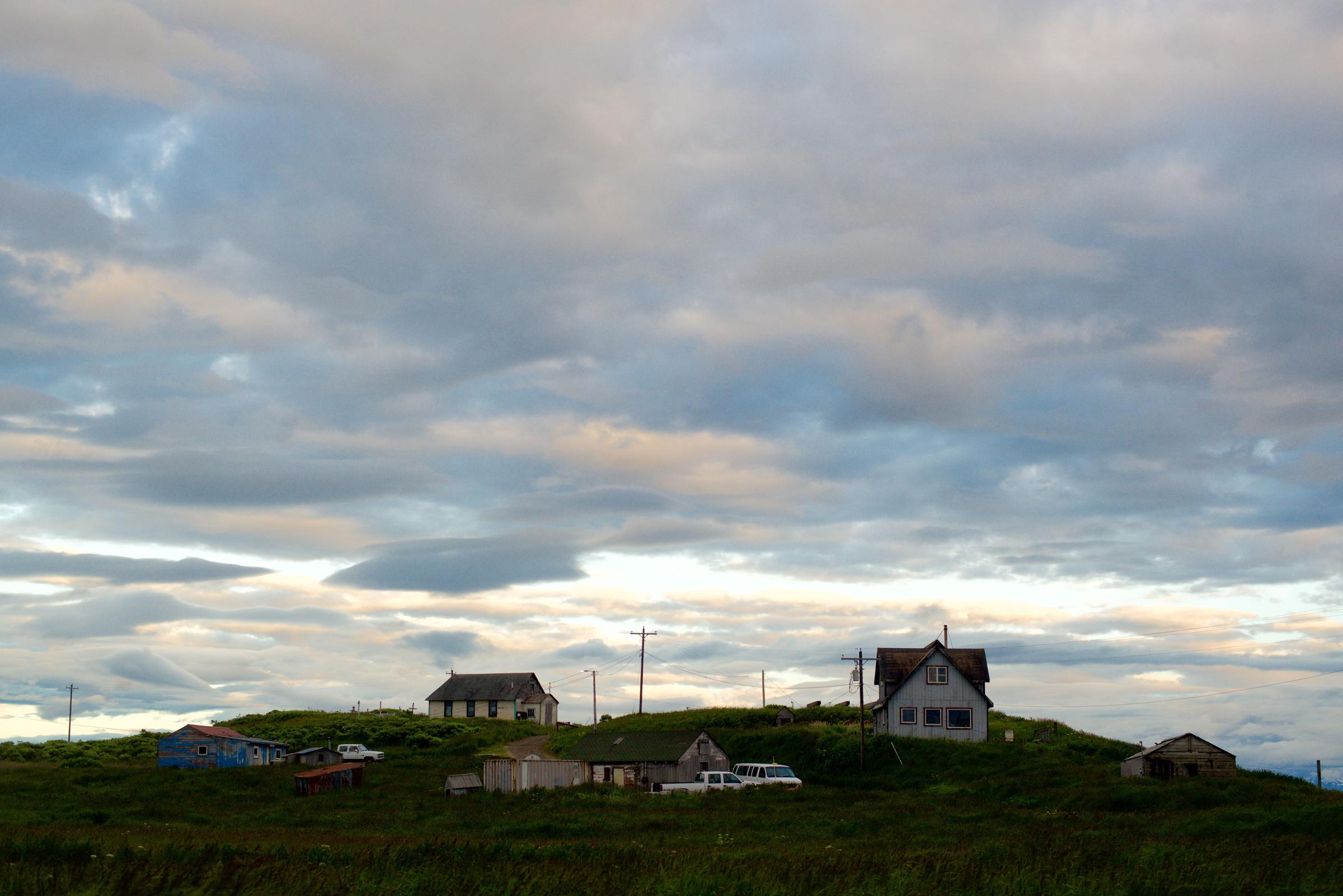
Pilot Point is a part of a growing number of rural Alaska communities turning to wind to help heat homes because the cost of diesel is so expensive, especially in the winter.
A lot of rural Alaska communities depend on diesel fuel for electricity and heating.
After years of work, a plan is going into action that could help the village of about 50 year-round residents get a more reliable and affordable source of energy.
Pilot Point primarily uses diesel-powered generators to power the village, which could begin to change in the coming months as a pair of wind turbines come online.
“Wind is basically what we have an abundance of and if we can use that to heat the houses as well as for power, it’ll be a real god sent for us,” said Greg Kingsley, the Native Village of Pilot Point’s Indian environmental assistance program coordinator.
He’s been working on the project to help the community move away from relying on fossil fuels and switching to renewable energy for more than a decade.
The pair of Belgian made Xant wind turbines that are being installed will be able to produce four times the amount of electricity needed to power the community.
The excess power will be funneled into Pilot Point homes to run new heating stoves being installed for free. Homes will be mostly heated by wind energy rather than heating oil.
“What we’ll be doing is taking that excess power and putting it into what they call the thermal impact stoves,” Kingsley said. “So you get essentially free heat.”
Kingsley explained, “For example, our house can burn $1,500 a month in the winter in fuel oil. So yeah, it’s going to make a big difference for us especially in savings.”
When the turbines go up later this month they will only be able to generate power when it’s windy.
The next step in the project will be to install batteries so wind energy can be stored and used when its calm outside.
Pilot Point will likely decrease the amount of diesel it uses by an estimated 30 percent of the fuel the community has used in the past — even without energy storage.
Kingsley is hopeful for the project but also knows some bugs will probably need to be worked out before everything runs smoothly.
“Part of the devil’s bargain is that you’re putting in technology that hasn’t been proven yet but, it has to be proven somehow,” he said. “Someplace has to try it out so it’s risky.”
Pilot Point’s wind project is mostly funded through grants front the United States Department of Agriculture, Bristol Bay Economic Development Corporation, and the Alaska Energy Authority.
Construction on the turbines will start later this month and the heating stoves should be warming homes by winter.
